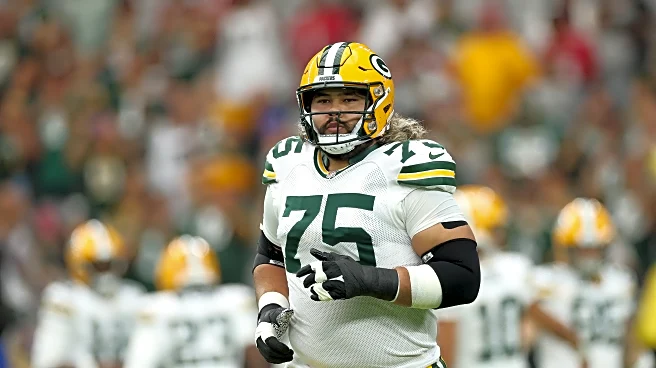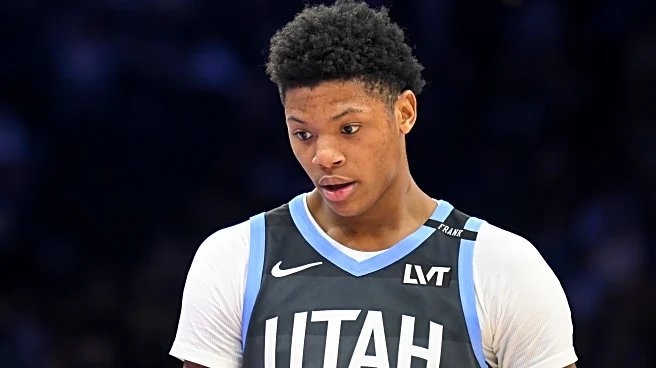What's Happening?
Jesús Montero, a former Major League Baseball catcher known for his time with the New York Yankees and Seattle Mariners, has died at the age of 35. The Yankees confirmed his death, which occurred following
a motor vehicle accident in Venezuela, as reported by local media. Montero was once considered a top prospect, recognized for his offensive potential. He debuted in the major leagues in 2011 and was ranked among the top six prospects by Baseball America for three consecutive years from 2010 to 2012. Montero's career included a notable trade to the Mariners, where he played 226 games, hitting 24 home runs and achieving 92 RBIs. His last major league appearance was in 2015, and he continued to play in the Venezuelan Winter League until the 2020-21 season.
Why It's Important?
Montero's death marks the loss of a player who was once seen as a promising talent in Major League Baseball. His career trajectory highlights the challenges and unpredictability faced by professional athletes, particularly those transitioning from high expectations to the realities of professional sports. Montero's story is a reminder of the fleeting nature of sports careers and the personal and professional challenges athletes may encounter. His passing may resonate within the baseball community, prompting reflections on player development, career management, and post-career transitions for athletes.
What's Next?
The baseball community may respond with tributes and reflections on Montero's career and potential. His death could lead to discussions about player safety and support systems for athletes, both during and after their professional careers. Organizations may also consider how they can better support players in managing the pressures and transitions associated with professional sports.
Beyond the Headlines
Montero's career and untimely death may prompt broader discussions about the support systems available to athletes, particularly those who face significant transitions or challenges. The incident underscores the importance of mental health and career planning resources for athletes, as well as the need for ongoing support beyond their active playing years.










